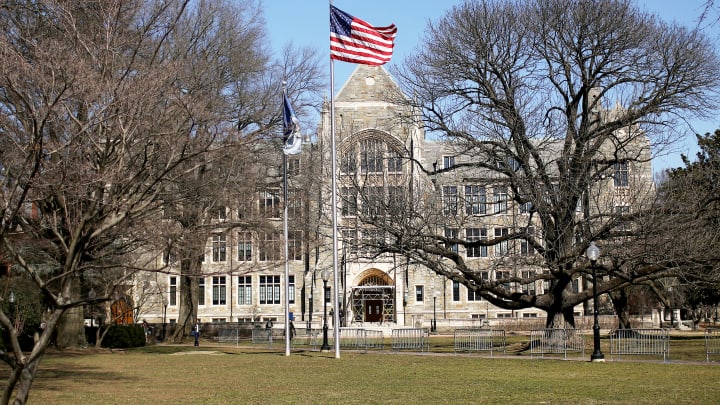Underneath the College Admissions Scandal, There’s Even More Scandal

One Tuesday afternoon a little less than 10 years ago, I sat numb in my prep school dorm room binge-watching, unforgettably, The Celebrity Apprentice. I had just been pummeled with a wave of rejections from America’s most selective schools, and I couldn’t work up the energy to leave my chair. It wasn’t just that I had mishandicapped my prospects of admission, though maybe I had; it was that I had tied my self-worth to the outcome of a slapdash process that had just slapped me around, and back then I lacked the perspective to see that.
Oh, sure, the guidance counselors were there with words of advice, life goes on, that sort of thing, which was welcome enough, if incomplete, and inadequate for squelching the conspiracist whispers traveling through campus in the days after we got our letters. “Did you know so-and-so was a double legacy at Harvard? And a recruited athlete?” “She told me she wasn’t even applying!” What I would have given, in those days, for a document like the one produced by FBI Special Agent Laura Smith and unsealed in federal court on Tuesday!
For anyone wanting the goods on just what can get an ordinary kid (with rich parents) into an extraordinary school, Smith has ’em. The story told in the affidavit, in unsparing and often comic detail, is the story of just how shot-through the college-admissions process is with graft, favor-trading, and proper fraud. Prosecutors tell of parents (including celebrity actors Felicity Huffman and Lori Loughlin) springing for bogus SAT and ACT results and phony amateur athletic credentials; in a handful of cases, college coaches allegedly took cash bribes to designate applicants as athletic recruits. $1.2 million, of which $400,000 was funneled to the coach, was the supposed ante for a fake spot on Yale’s women’s soccer team; a spot on the USC men’s water polo club cost about a quarter as much. Places in the freshman class were up for sale at schools like Georgetown and Texas and Wake Forest. Orchestrating it all was a California man, William Singer, who called his college-prep outfit The Key.
I was excited to see the document Tuesday, albeit for new reasons. These days I care far less, thankfully, than I did in 2009 about impropriety in the college admissions process. With time—and it really doesn’t take much—most fancy diplomas reveal themselves as no more than drab wall art.
But impropriety in the college admissions process is just the affidavit’s nominal topic. What it reveals more valuably is a pervasive sickness among a class of elite parents, parents so toxically desperate to credential their children, and in the process themselves, that they had to hide their activity from its supposed beneficiaries. There was the parent who wanted to keep her son from knowing that someone else had taken his ACT and scored so well on it, and the parent who worried that his non-athlete son might stand out at water polo practice. (In some cases the scheme was too involved to hide it from the kids: One student had to stage a water polo action shot, but he didn’t play water polo, so his father retained the services of a graphic designer, and outfitted his son with a ball and a swimming cap. “A little high out of the water—no one gets that high,” Singer told the father, after the designer’s first try with Photoshop.)
Side doors have long been available to the rich and famous—universities are eminently willing to auction off spots through their painfully euphemistic development offices—though they have never before been spelled out so clearly, and with such bathos, in a charging document.
The legal component of this scandal, for what it’s worth, may well be shaky. “Conspiracy to commit mail fraud and honest services mail fraud,” the rap 33 parents face, strikes me as the prosecutorial equivalent of the first draft of a water-polo-action-shot Photoshop. Whether anyone should be held criminally accountable for taking particularly unseemly advantage of a system as broken as the college admissions process will make for tough deliberations for some future jury.
The documents facilitate no such doubt, though, when it comes to their subtextual indictment of American meritocracy and its hallowed institutions and loudest defenders. The wealthy believe their kids deserve special treatment, even as they preach a gospel of self-reliance. Employees of prestigious universities will make every effort to provide that special treatment to the wealthy and connected, even as they stress the importance and virtue of their social or athletic mission. (Plus, there’s the uncomfortable fact that these institutions of higher learning are happy to lower their academic standards for recruited athletes in the first place.)
It was a curmudgeonly pose to hold in high school, questioning the wisdom of admissions committees and the efficacy of the applications process. I felt guilty then for having those thoughts instead of punishing myself, but no new Yale reject should feel the same way. It is now the official view of no less mainstream an institution than the United States Department of Justice.
